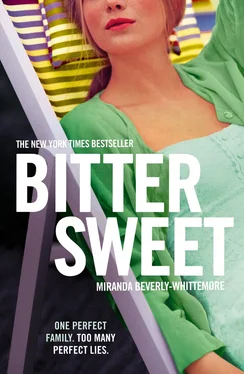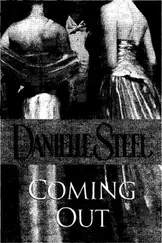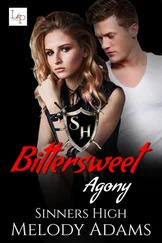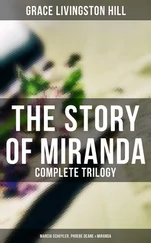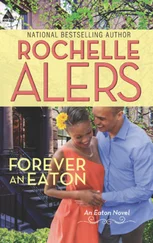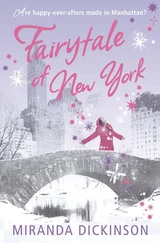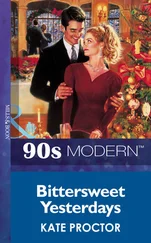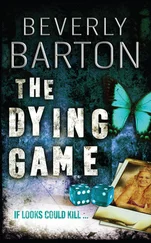‘Genevra,’ she acknowledged, once satisfied I had nothing to offer.
‘Mum.’ I caught the tightness in Ev’s voice, which melted as soon as her father placed his arm around her shoulder.
‘Happy birthday, freckles,’ he whispered into her perfect ear, tapping her on the nose. Ev blushed. ‘And who,’ he asked, holding out his hand to me, ‘is this?’
‘This is Mabel.’
‘The roommate!’ he exclaimed. ‘Miss Dagmar, the pleasure is all mine.’ He swallowed that awful g at the center of my name and ended with a flourish by rolling the r just so. For once, my name sounded delicate. He kissed my hand.
Tilde offered a thin smile. ‘Perhaps you can tell us, Mabel, where our daughter was over Christmas break.’ Her voice was reedy and thin, with a brief trace of an accent, indistinguishable as pedigreed or foreign.
Ev’s face registered momentary panic.
‘She was with me,’ I answered.
‘With you?’ Tilde asked, seeming to fill with genuine amusement. ‘And what, pray tell, was she doing with you?’
‘We were visiting my aunt in Baltimore.’
‘Baltimore! This is getting better by the minute.’
‘It was lovely, Mum. I told you – I was well taken care of.’
Tilde raised one eyebrow, casting a glance over both of us, before turning to the curator at her arm and asking whether the Rodins were on display. Ev placed her hand on my shoulder and squeezed.
I had no idea where Ev had been over Christmas break – she certainly hadn’t been with me. But I wasn’t lying completely – I’d been in Baltimore, forced to endure my Aunt Jeanne’s company for the single, miserable week during which the college dorms had been shuttered. Visiting Aunt Jeanne at twelve on the one adventure my mother and I had ever taken together – a five-day East Coast foray – had been the highlight of my preteen existence. My memories of that visit were murky, given that they were from Before Everything Changed, but they were happy. Aunt Jeanne had seemed glamorous, a carefree counterpoint to my laden, dutiful mother. We’d eaten Maryland crab and gone to the diner for sundaes.
But whether Aunt Jeanne had changed or my eye had become considerably more nuanced in the intervening years, what I discovered that first December of college was that I’d rather shoot myself in the head than become her. She lived in a dank, cat-infested condo and seemed puzzled whenever I suggested we go to the Smithsonian. She ate TV dinners and dozed off in front of midnight infomercials. As Tilde turned from us, I remembered, with horror, the promise my aunt had extracted from me at the end of my stay (all she’d had to do was invoke my abandoned mother’s name): two interminable weeks in May before heading back to Oregon. I dared to dream that Ev would come with me. She’d be the key to surviving The Price Is Right and the tickle of cat hair at the back of the throat.
‘Mabel’s studying art history.’ Ev nudged me toward her father. ‘She loves the Degas.’
‘Do you?’ Birch asked. ‘You can get closer to it, you know. It’s still ours.’
I glanced at the well-lit painting propped upon a simple easel. Only a few feet separated me from it, but it may as well have been a million. ‘Thank you,’ I demurred.
‘So you’re majoring in art history?’
‘I thought you were majoring in English,’ the president interrupted, suddenly at my side.
I grew red-faced in the spotlight, and what felt like being caught in a lie. ‘Oh,’ I stammered, ‘I like both subjects – I really do – I’m only a first-year, you know, and—’
‘Well, you can’t have literature without art, can you?’ Birch asked warmly, opening the circle to a few of Ev’s admirers. He squeezed his daughter’s shoulder. ‘When this one was barely five we took the children to Firenze, and she could not get enough of Medusa’s head at the Uffizi. And Judith and Holofernes! Children love such gruesome tales.’ Everyone laughed. I was invisible again. Birch caught my eye for the briefest of seconds and winked. I felt myself flush gratefully.
After the president’s welcome toast, and the passed hors d’oeuvres, and the birthday cupcakes frosted with buttercream that matched my dress, after Ev made a little speech about how the college had made her feel so at home, and that she hoped the Degas would live happily at the museum for many years to come, Birch raised a glass, garnering the room’s attention.
‘It has been the Winslow tradition,’ he began, as though we were all part of his family, ‘for each of the children, upon reaching eighteen, to donate a painting to an institution of his or her choice. My sons chose the Metropolitan Museum. My daughter chose a former women’s college.’ This was met with boisterous laughter. Birch tipped his glass toward the president in rhetorical apology. He cleared his throat as a wry smile faded from his lips. ‘Perhaps the tradition sprang from wanting to give each child a healthy deduction on their first tax return’ – again, he was met with laughter – ‘but its true spirit lies in a desire to teach, through practice, that we can never truly own what matters. Land, art, even, heartbreaking as it is to let go, a great work of art. The Winslows embody philanthropy. Phila, love. Anthro, man. Love of man, love of others.’ With that, he turned to Ev and raised his champagne. ‘We love you, Ev. Remember: we give not because we can, but because we must.’
CHAPTER THREE
The Invitation
ONE TOO MANY GLASSES of champagne, one too few canapés, and an hour later, the overheated room was swimming. I needed air, water, something, or I felt sure that my ankles – bowing under my body’s pressure upon the thin, pointed pair of heels Ev had insisted I borrow – would blow. ‘I’ll be back,’ I whispered as she nodded numbly at a trustee’s story about a failed trip to Cancún. I teetered down the long, glass-covered walkway leading into the gothic wing of the museum. In the bathroom, I splashed tepid water on my face. Only then did I remember I had makeup on. But it was too late; the wetness had already wreaked havoc – smeared lips, raccoon eyes. I pumped down paper towels and scrubbed at my face until I looked like I’d slept on a park bench, but not actively insane. It didn’t matter anyway – we were just going back to the dorm. Perhaps we’d order pizza.
I traipsed back up the hallway, a woman made new with the promise of pajamas and pepperoni. I was surprised to discover the great room already empty – save the violinist packing up her instrument and the waiters breaking down the naked banquet tables. Ev, the president, Birch, Tilde – all of them were gone.
‘Excuse me,’ I said to one of the waiters, ‘did you see where they went?’
His eyebrow ring caught in the light as he raised his brows in a ‘why should I care’ I recognized from my own nights working late at the cleaner’s. I went to the ladies’ room and peeked under the bathroom stalls. Tears began to sting my eyes, but I fought against them. Ridiculous. Ev was probably headed home to find me.
‘Goodness, dear,’ the curator tsked when she caught me in there. ‘The museum is closed.’ Had Ev been by my side, she wouldn’t have said it, and I wouldn’t have quickened my departure. I plucked my lonely coat from the metal rack in the foyer, and plunged out into the cold.
There, in sight of the double doors, were Ev and her mother, their backs to me. ‘Ev!’ I called. She did not turn my way. The wind, surely, had carried off my voice. So I approached, concentrating on my steps so as not to twist an ankle. ‘Ev,’ I said when I was close. ‘There you are. I was looking for you.’
Читать дальше
